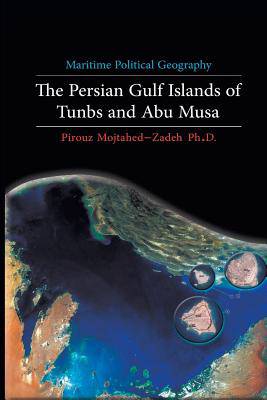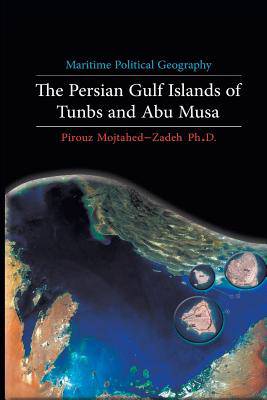
Bedankt voor het vertrouwen het afgelopen jaar! Om jou te bedanken bieden we GRATIS verzending (in België) aan op alles gedurende de hele maand januari.
- Afhalen na 1 uur in een winkel met voorraad
- In januari gratis thuislevering in België
- Ruim aanbod met 7 miljoen producten
Bedankt voor het vertrouwen het afgelopen jaar! Om jou te bedanken bieden we GRATIS verzending (in België) aan op alles gedurende de hele maand januari.
- Afhalen na 1 uur in een winkel met voorraad
- In januari gratis thuislevering in België
- Ruim aanbod met 7 miljoen producten
Zoeken
Maritime Political Geography
The Persian Gulf Islands of Tunbs and Abu Musa
Pirouz Mojtahed-Zadeh
Paperback | Engels
€ 72,45
+ 144 punten
Omschrijving
This book magnifies only one instance of Iran's geopolitical role in the Persian Gulf in the interim period between the British withdrawal of forces from, and the American arrival in that region. Two centuries of Pax-Britannica was the period of territorial organization of the region, which resulted in the creation of a number of small states or emirates defining territories and boundaries for which caused huge territorial complications with the older states of the region. Pax-Britannica was removed at the end of 1971 without settling these difficult issues. Yet, immediately after their departure from the Persian Gulf, Iran began the initiative of settling territorial differences among the littoral states. Negotiations for the delimitation of maritime boundaries in the Persian Gulf which started in 1968 with Saudi Arabia continued with each and every Arab state of the region and by mid-1970s all maritime boundaries of Iran with her Arab neighbours were settled, including legal settlement of the issue of the islands extensively examined in this book. In 1975 the age-old Iran-Iraq territorial and boundary disputes were settled in Shatt al Arab, and in the same year Iran's initiative of settling territorial disputes went beyond the region of the Persian Gulf and the Shah quelled the fire of separatist movements in Dhufar of Oman as well as intervening in Egyptian Israeli disputes and settle their differences over the Sinai Peninsula. Israeli author, Samuel Segev admits in his 1981 publications on Israeli secret relations in the Middle East that "The Shah was the originator of the idea to mediate between Anwar Sadat and Golda Meir." Another instance of the Iranian endeavour to safeguard Arab territorial integrity was Iran's undertaking in eradication of threats to Oman's territorial integrity in the early 1970s. Within three years Iranian soldiers defended with their lives Oman's territorial integrity in Dhufar Province in the face of a fierce communist separatist movement that British forces could not eradicate in twelve years.
Specificaties
Betrokkenen
- Auteur(s):
- Uitgeverij:
Inhoud
- Aantal bladzijden:
- 242
- Taal:
- Engels
Eigenschappen
- Productcode (EAN):
- 9781612332956
- Verschijningsdatum:
- 16/04/2015
- Uitvoering:
- Paperback
- Formaat:
- Trade paperback (VS)
- Afmetingen:
- 140 mm x 210 mm
- Gewicht:
- 276 g

Alleen bij Standaard Boekhandel
+ 144 punten op je klantenkaart van Standaard Boekhandel
Beoordelingen
We publiceren alleen reviews die voldoen aan de voorwaarden voor reviews. Bekijk onze voorwaarden voor reviews.









